Guest writer for Wake Up World
You feel disconnected right now, perhaps even a little sad or lonely – or even like no one really cares about you or sees you fully.
Accompanying feeling disconnected, you might feel lost in life, like you’re aimless, bored, unhappy, restless, and have no direction.
[pro_ad_display_adzone id=”110028″]
In essence, you feel like a tiny island drifting in the middle of a big ocean, cut off from all signs of life for miles.
So the first thing I want you to know is that you’re not alone (even though you might feel that way right now).
If you keep experiencing feeling disconnected or like you can’t quite find a sense of belonging in the world and among other people, this article is dedicated to you.
What Does Feeling Disconnected Mean?
Feeling disconnected from others and perhaps even life itself is a complex experience with many nuances. Some describe this feeling as a heaviness in their chest, a sensation of all-pervading emptiness, numb loneliness, or even like they’re an outsider looking in to a world that doesn’t feel like their true home.
But overall, feeling disconnected is about feeling cut off and separated from that which you care about, whether that is a friend or friends, family members, lover, or even your meaning of life or True Nature.
Feeling Disconnected From Reality vs. Feeling Disconnected Emotionally

Feeling disconnected from reality is known in psychology as dissociation. If you persistently experience the sensation that you’re in a dreamlike state, or that you’re not quite living in reality, then you’re likely struggling with unprocessed trauma. I strongly recommend that you seek out a mental health professional ASAP. This guide may help, but it’s beyond the scope of this article to deal with such psychological issues.
In this article, what we’re focusing on is feeling disconnected on an emotional level.
If you’re feeling emotionally disconnected, you’ll still be able to function and live life (i.e., you don’t feel like you’re going crazy). But you feel unhappy in some way – perhaps like you can’t connect with others in the way you want to, or like no one really gets you in a deep way, or that you’re the eternal outsider.
Some link feeling disconnected with being the black sheep of the family or experiencing a midlife crisis or quarter life crisis.
Superficial Reasons Why You’re Feeling Disconnected and Sad
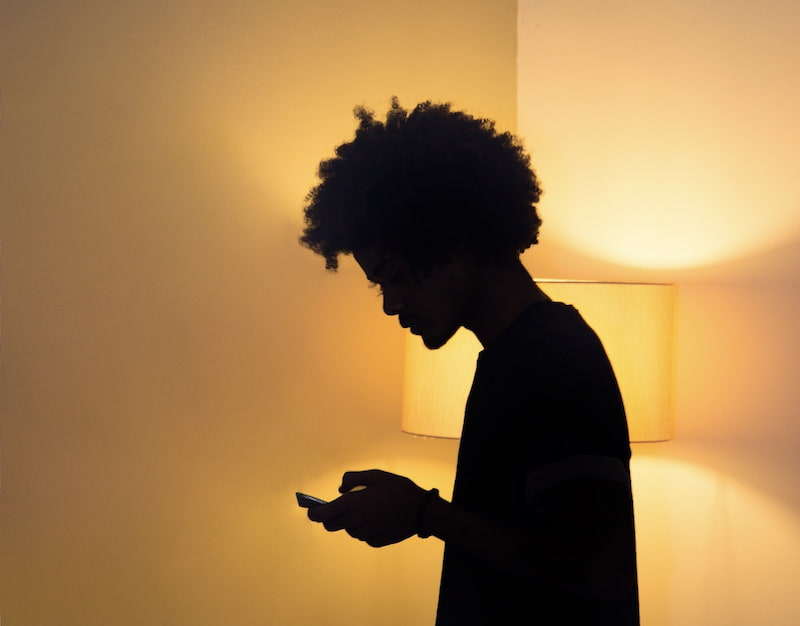
Sometimes feeling disconnected is a temporary experience that may last for a few hours or a day or so.
Here are some of the ‘superficial’ reasons (i.e., to do with your general habits) as to why you’re possibly feeling disconnected and sad:
- Not enough sleep (sleeping under 7 hours)
- Poor diet (e.g., excess of sugar, carbs, processed foods)
- Lack of exercise
- Too much social media use (which has been linked to depression and anxiety)
- Pent-up stress and lack of relaxation time
- Vitamin deficiency (e.g., vitamin D, vitamin B12)
- Seasonal depression (mood changes related to changing seasons)
Take a moment to consider whether any of these points apply to you.
Deeper Reasons Why You’re Feeling Disconnected and Sad
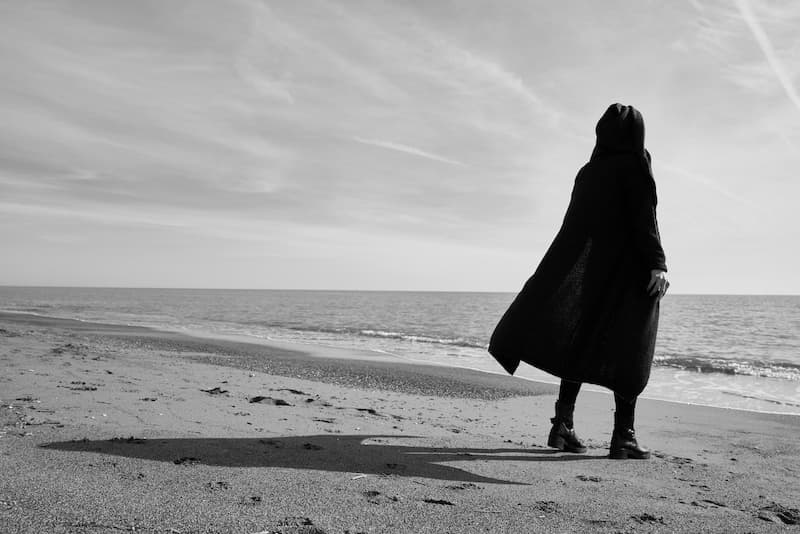
At times, for some people, feeling disconnected is a long-term experience that can last for months, sometimes even years.
Here are some of the ‘deeper’ reasons (i.e., to do with your unconscious patterns and processes) as to why you may be feeling disconnected and sad:
- Negative core beliefs about oneself and others
- Unresolved childhood trauma (namely, abandonment wounds)
- Disconnection from your heart
- Imbalanced personal boundaries
- Lack of connection to one’s innermost Self or Soul
Do you feel like any of these deeper reasons might apply to you? Pause to consider.
7 Ways to Feel Better, More Grounded, and Emotionally Connected

I’m not interested in giving you the typical advice you might read about feeling disconnected (e.g., stop using social media so much, sleep better, spend time with loved ones, etc.). There’s so much mundane advice out there on this topic.
“Feeling disconnected? Well, why don’t you go and connect with someone!” is the general instruction. “Think more positive thoughts! Get more exercise!”
But what happens when you take all that advice on board … but you still feel like something is missing – you still feel like there’s something deeper that needs to be brought to light?
As someone who has struggled their whole life with this feeling, I want to give you quality advice and guidance – especially if you’ve been grappling with this feeling for a long time.
So here are some ways to feel better, more grounded, and more emotionally connected when you’re struggling with feeling disconnected:
1. Stop adding fuel to the fire
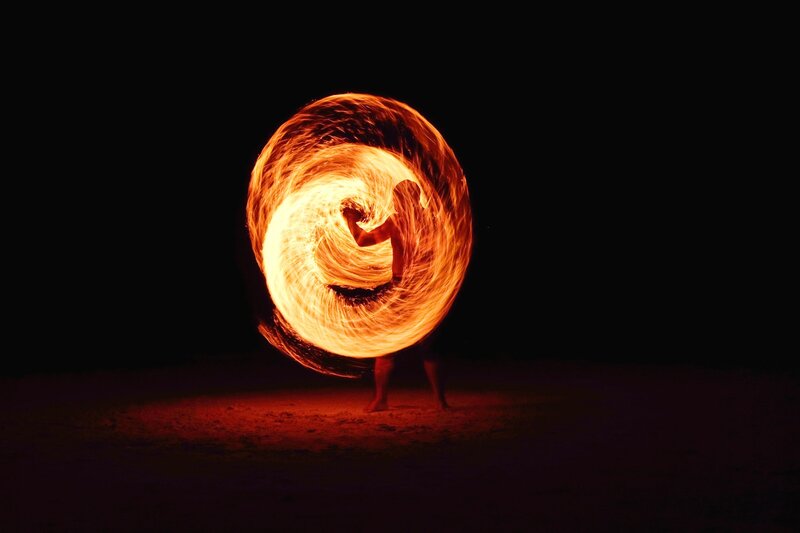
When we feel disconnected, whether for a short or long period of time, our minds tend to freak out. The next thing we know, our minds have generated a million stories about how we’re “going to die alone,” “no one will ever understand us,” “we’re boring, lonely losers,” “this feeling is a sign that there’s something wrong with us,” “this feeling will never end and we’ll awalys be suffering” … and you get the picture.
When the mind begins spinning out of control and adding ‘fuel to the fire’ of the feeling of being disconnected, we start identifying with whatever storylines and ideas it generates. And when we start identifying with, or believing, that these thoughts are absolutely true, we suffer even more.
We become anxious about our anxiety, depressed about our depression, and sad about our sadness.
Instead of just acknowledging that, yeah, we feel disconnected and sad right now, but that’s okay, that’s normal, and it’s going to pass eventually – our minds begin dramatizing the experience, making it much worse.
This leads me to the next point …
2. Befriend your difficult feelings
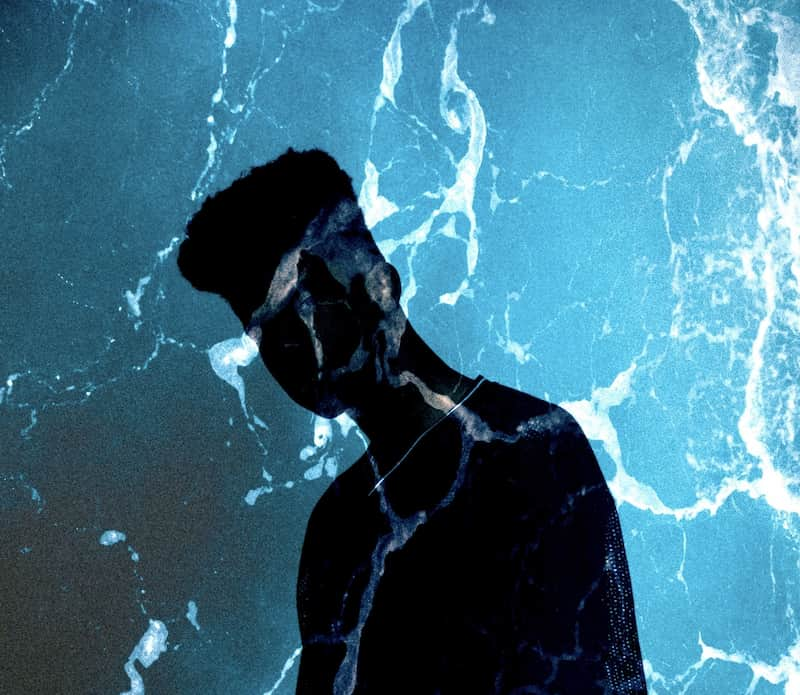
Instead of rejecting or trying to fix, get rid of, kill, banish, or even spiritually ascend past your difficult feelings of being disconnected, befriend them.
Sounds crazy right? But learning to befriend our difficult feelings is an act of self-love and self-compassion. Instead of approaching our inner weather with violence, we approach it with kindness.
To befriend our difficult feelings, we might:
- Dialogue with these feelings through journaling (e.g., ask your disconnected feeling “What do you need?” “What would you like to tell me?” “How can I help you?”)
- Personify them or give them a face/image/ form so that we can connect with them better – and then draw or creatively express them
- Visualize meeting and holding space for them, perhaps as an old friend, helper, or ally there to lend an ear
- Place one hand over our heart and the other over our stomach and affirm “I am here for you,” “It’s okay to feel this way,” “This will pass”
Can you think of any other ways to befriend your feelings of disconnection and sadness?
3. Let nature be your healer

Nature is our greatest teacher – it clothes us, feeds us, shelters us, and sustains us in every possible way. We are part of nature, and nature is part of us. It’s no wonder that being in nature is one of the most soothing ways of dealing with feeling disconnected.
When I was going through one of the darkest periods in my life, and I had no one I trusted enough to turn to, nature was my greatest ally and friend. I would sit and watch the undulating valleys from my window, take a walk and watch the trees and birds, and marvel at the changing nature of the clouds.
In Japan, they have a form of nature healing called Shinrin Yoku, or Forest Bathing. And for those who like scientific ‘proof’ that something works, there have been endless studies about the benefits of nature on our mental and emotional health.
So my advice is to go outside. Go for a walk. Or if you don’t have access to that, watch the sky from your window. Listen to some kind of sounds of nature recording of the rainforest, ocean, thunderstorms, crickets, or anything that makes you feel at home.
Notice how in nature everything is in a constant state of change. Dark clouds emerge in the sky and block out the sun, but then later, the sun emerges again. Sometimes rain falls, and sometimes there are no clouds in the sky.
The sky is really just a metaphor for your inner landscape: your mind. Dark clouds of disconnection will come, and then they will go. Nothing lasts forever. Even those who feel chronically disconnected will notice that, upon closer inspection, that emotion isn’t there 100% of the time.
4. Sometimes feeling disconnected is a blanket that makes us feel safe
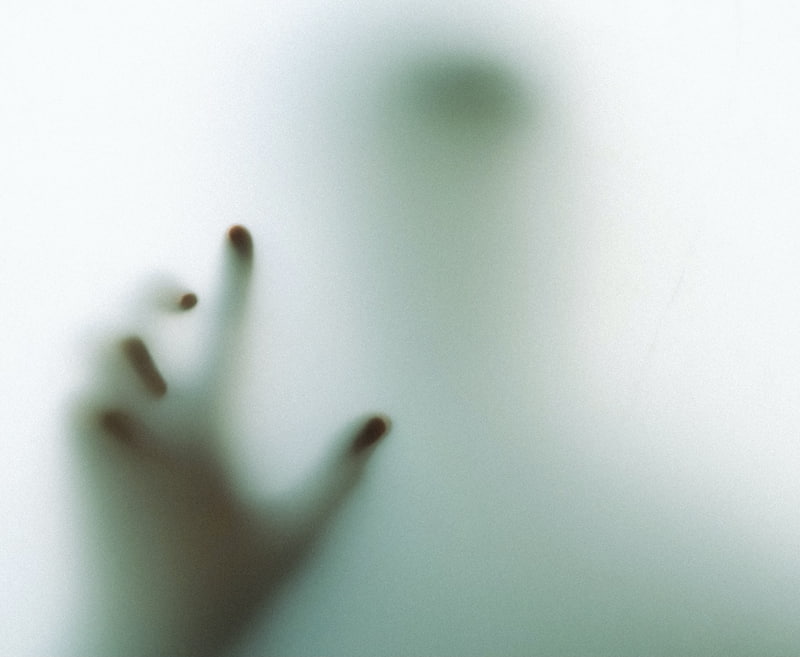
I know this might sound a little bizarre. But sometimes feeling disconnected is a blanket that makes us feel safe because it serves as a way of “protecting” us from the world by distancing ourselves from perceived threats to our safety (i.e., others).
Other times, feeling disconnected actually becomes like an identity that we attach to because it makes us feel ‘different,’ ‘special,’ or righteously vindicated in some way.
I used to derive a sense of identity from being an outcast (which is defined by feeling disconnected most of the time) because that’s how I made quirky friends in school and found a strange sense of self-worth.
In fact, feeling disconnected was the very feeling that caused me to co-create this website (“lonerwolf”), which I’ve now reoriented to focus on the deeper aspect of walking your true path and Soul searching.
Of course, none of this behavior happens consciously. But if you find yourself struggling or even resisting the thought of letting go of feelings of disconnection, these unconscious patterns might be the cause.
5. Learn to reparent yourself

Reparenting yourself is the practice of giving yourself the love, support, and validation that you may have needed as a child but never received, as an adult.
In most cases, persistently feeling disconnected and sad on some level originate from childhood trauma. And trauma tends to cause our nervous systems to become dysregulated or imbalanced, which leads to feelings of disconnection.
In the words of psychotherapist and trauma specialist David Treleaven,
… trauma is a dysregulating experience—often leaving us feeling disconnected from our bodies and out of control.
Therefore, learning how to practice self-love and work with our inner child can be a deeply healing experience, liberating us from an underlying sense that we don’t belong or aren’t wanted.
If you’d like some structured guidance to go deeper into this work, I recommend checking out the Self-Love Journal and Inner Child Work Journal that I’ve co-created. These highly rated printable/digital journals can be accessed immediately and worked through at your own pace.
As poet and teacher Jeff Foster writes about self-parenting and self-love,
If abandonment is the core wound
the disconnection from mother
the loss of wholeness
then the most potent medicine
is this ancient commitment
to never abandon
yourself
to discover wholeness in the whole-mess
to be a loving mother
to your insides
to hold the broken bits
in warm open awareness
and to illuminate the sore places
with the light
of love.
6. Redefine what ‘connection’ means to you
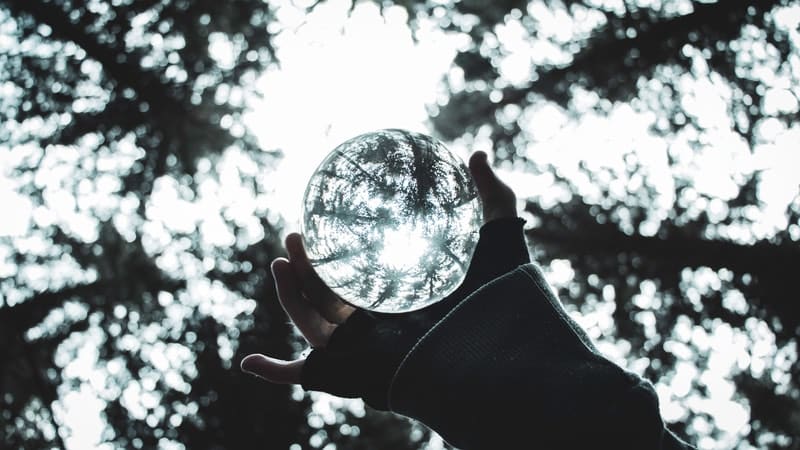
Many people think that feeling connected means having a ton of friends, a partner, children who love you, and essentially an idyllic life. But is that really realistic?
In truth, connection doesn’t have to come through those avenues, especially if people are a source of distress to you or you’re an introvert.
You can also find connection through cuddling your pet, smiling at a stranger on a walk through your neighborhood, chatting to people on a video game, watching ants on the pavement, relaxing to a guided meditation, reading a book and relating to the characters, or watching a youtube video from someone you like and respect.
There are so many ways to find connection that are underrated, but are just as valid as having a big group of friends or close relationships!
7. Find a true home in your Deeper Self
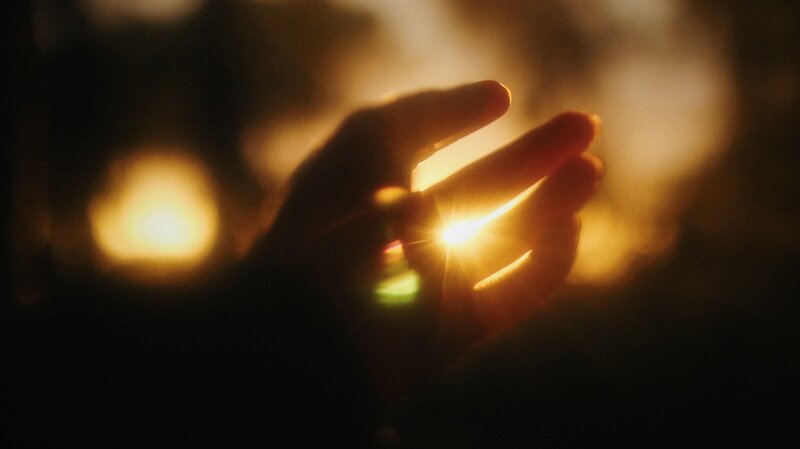
Perhaps at the core level, feeling disconnected is a sign that we lack a strong connection to our Deeper Self or Soul.
When we struggle with Soul Loss (not literally losing our Soul, but losing connection with it), we feel a sense of existential depression or lethargy, aimlessness, and malaise.
The way to connect with your Soul is through your heart: your heart is that place of inner warmth, compassion, and kindness within you. You could say that your heart is your true home.
There are so many ways to reconnect with your heart, such as through a daily lovingkindness meditation, the practice of gratitude, mirror work, chanting mantras, working directly with your heart chakra, journaling, volunteering/bhakti yoga, and other inner work practices.
If you’d like to go deeper into reconnecting with your Soul, you might like to consider our spiritual awakening bundle as a helpful resource.
***
I hope you know by now that feeling disconnected and sad is totally normal. There’s nothing wrong with you. It’s not like you chose to feel this way. But you can choose to be gentle with yourself and be mindful of your mind’s tendency to cling to harmful stories.
Tell me, what part of this article helped you or sparked the most amount of insight? I hope it has been of help to you. Don’t forget that you can always return to these words whenever you need them!
About the author:
Aletheia Luna is a prolific psychospiritual writer, author, and spiritual mentor whose work has touched the lives of millions worldwide. As a survivor of fundamentalist religious abuse, her mission is to help others find love, strength, and inner light in even the darkest places. She is the author of hundreds of popular articles, as well as numerous books and journals on the topics of Self-Love, Spiritual Awakening, and more. See more of her work at lonerwolf.com.
This article, Feeling Disconnected and Sad (7 Ways to Feel Better), was originally published on lonerwolf.com, reproduced with permission.
[pro_ad_display_adzone id=”110027″]








